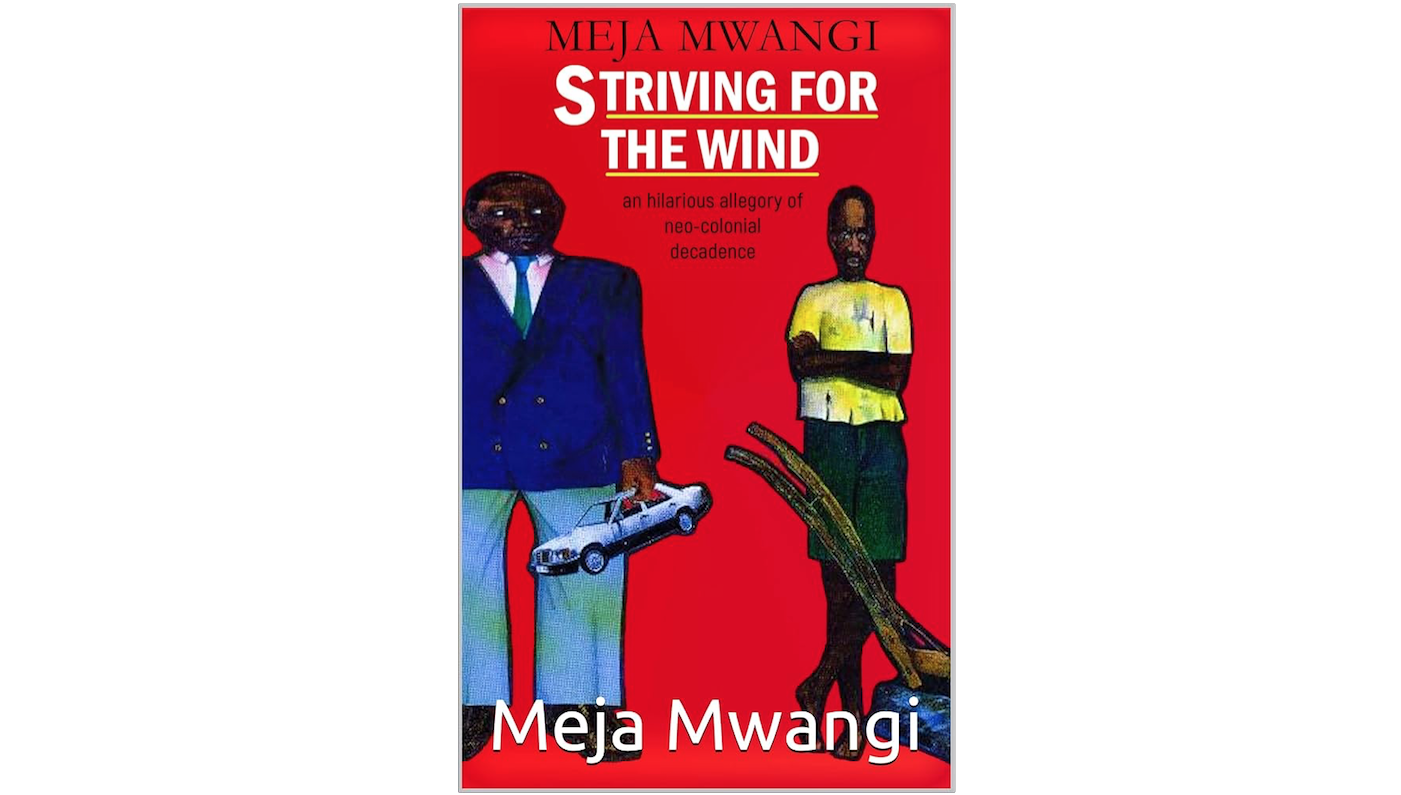

It is a book where laughter and frustration share a bed, and you, helpless reader, are stuck between them, listening to their endless squabbles.
The author is a master of contradictions. His village setting is at once intimate and expansive, a place where everyone knows everyone else’s business, but the weight of land, power and reputation feels as heavy as the Rift Valley itself.
The title says it all: Striving for the wind. The villagers chase things they can never quite hold, ambitions that slip through their fingers even as they brag about them. You do not just read this book- you live in the tension of wanting more while never feeling satisfied.
What makes the novel truly sparkle is the author’s biting humour. This is not the polite chuckle-at-the-back-of-your-throat humour. It is the kind that makes you laugh out loud before realising, a second later, that the author is laughing at you, too. His characters are exaggerated yet painfully real, boasting loudly, scheming constantly and occasionally philosophising in the most unlikely of moments.
As one character puts it, “That a man was truly free and happy only when he had no desire for the things money could buy.” That line feels like it should be stitched onto a throw pillow, until you realise it is delivered by someone who is drowning in their own contradictions.
And contradictions are everywhere. A wealthy landowner who never seems to have enough. A drunk whose slurred words carry more wisdom than the sober elders. A neighbour whose quiet refusal carries more weight than endless speeches.
The author delights in flipping the tables, reminding us that dignity does not always wear fine clothes, and wisdom does not always arrive sober. The reader is kept perpetually off-balance, laughing at one moment, then sighing at the bitter sting of truth the next.
Stylistically, the author does not waste time with flowery padding. His prose is sharp, lean and mischievous, like a goat slipping through your garden fence. He paints scenes with quick brushstrokes, always trusting the reader to hear the unspoken chatter behind the words.
The rhythm of dialogues, arguments layered with insults, sarcasm served with a straight face, and the kind of back-and-forth that makes you wish you could eavesdrop at a rural Kenyan bar just once.
But do not mistake the humour for lightness. Beneath the banter lies a powerful critique of postcolonial Kenya, where those who inherited power often wield it like a blunt machete. The author reminds us that independence was not a magic wand, it was a passing of the baton, and sometimes the runner grabbing it sprinted in the wrong direction.
As one observer in the novel reflects, “There is neither advancement nor improvement after the Europeans ceded power … The only difference was that those who rose to power imitated their ex-colonial master by intimidating, oppressing and humiliating their not-so-lucky fellow countrymen.”
It is a line that lands like a punch to the gut, and sadly, one that still echoes in more than a few corners of modern life.
What sets Striving for the Wind apart from many novels of its kind is how relatable it feels even if you have never stepped foot in rural Kenya. The hunger for status, the absurdities of pride, the stubbornness of the underdog — they are all universal. You could transplant these characters into almost any society and they would still feel right at home, still scheming, still chasing winds they cannot catch.
However, there are occasional bumps: grammatical slips, typographical quirks and moments where the narrative feels more like a patchwork of vivid sketches than a seamless whole. But oddly enough, these imperfections add to the novel’s raw charm. They make the text feel lived-in, like a well-thumbed book borrowed from a neighbour, slightly stained with tea but richer because of it.
In the end, reading Striving for the Wind is like watching a tug-of-war where neither side really wins, but the struggle itself is where the meaning lies. It is messy, funny, frustrating and brilliant, an unpolished gem that shines all the brighter for its roughness.
If you are looking for a story that coddles you, this is not it. But if you want a novel that makes you laugh, cringe and nod with recognition, all while slyly poking holes in the human obsession with ‘more’, then the author’s satire will stay with you long after you have turned the last page.
















